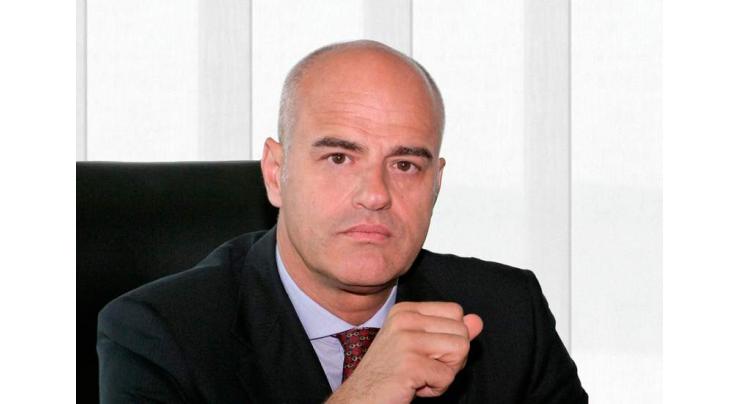
Chief Of Italian Oil Giant Eni Calls For Prevention Of Big Conflict In Middle East
Mohammad Ali (@ChaudhryMAli88) Published September 20, 2019 | 12:32 AM

A big multi-party conflict in the Middle East should be avoided as it would entail risks for the energy sector worldwide, with the recent escalation in the region highlighting the need to think more closely about mitigation measures, Claudio Descalzi, the CEO of Italy's largest oil company, Eni, said on Thursday
"We cannot risk a big conflict that can involve more countries. It's not just a question of energy security, it's a question of human lives," Descalzi said in Abu Dhabi when presenting the company's strategy in the Middle East, as quoted by The Financial Times.
He stressed that new geopolitical risks targeting countries that have the world's most important energy infrastructure were emerging and that their mitigation required a combination of stricter security control and diplomacy.
"What happened is changing something�...�more tension will require more attention, more security, more controls. If all of our institutions worldwide are wise they will also do the diplomatic work," Descalzi said, adding that "even if a hub is so well protected, everybody can be a target.
"
Eni has been working in the Middle East since the 1950s and is currently present in the United Arab Emirates, Iraq, Oman, Lebanon and Bahrain. With investments in the region already in the hundreds of millions of US dollars, the company has inked 16 new deals over the past 16 months to further extend its presence.
The situation in the Middle East has been especially precarious over the past several months, with instability mainly steaming from the standoff between Iran and the United States, and several attacks on oil tankers in the Persian Gulf.
Tensions spiked to new heights over the weekend when facilities of Saudi Arabia's national oil company, Saudi Aramco, were attacked by drones. The company had to shut down its Abqaiq and Khurais compounds, which resulted in a more than twofold drop in the country's oil output and subsequent surge of oil prices worldwide on Monday. Although responsibility for the attack was claimed by the military wing of Yemen's Ansar Allah movement, also known as the Houthis, the United States has put the blame on Iran. Tehran has refuted the accusation.
Related Topics
Recent Stories

Delegation of international investors meets Finance Minister

Federal Govt stands with Balochistan for its development: Naqvi

UAE President receives condolences of Prime Minister of Pakistan over passing of ..

ECC approves to enhance wheat procurement targets

UN urges Israel to 'stop escalation' as tanks enter Gaza's Rafah city

EU stumps up $125 mn for Yemen after aid groups' plea

Governor Tessori condemns May 9 riots, calls it a 'pre-planned conspiracy'

PM condoles with UAE President over Sheikh Tahnoun’s death

Milan nets Giro 4th stage, Pogacar retains lead

UBS back in profit after Credit Suisse takeover losses

Asiya Gul lauds Shafaat's services as DG LG

President for dialogue with all political forces in Balochistan
More Stories From Business
-

Delegation of international investors meets Finance Minister
4 hours ago -

ECC approves to enhance wheat procurement targets
4 hours ago -

UBS back in profit after Credit Suisse takeover losses
4 hours ago -

Minister for Planning, Development and Special Initiatives Ahsan Iqbal leaves for China
5 hours ago -

Stock markets mostly rise on lower rates optimism
5 hours ago -

AFD mission visits Faisalabad, gets updates of various projects
5 hours ago
-
Pakistan and China deepen collaboration on CPEC Phase-2
6 hours ago -

Stock markets mostly rise on lower rates optimism
6 hours ago -

Pakistan’s dairy, beef sectors need to be transformed through precision farming
5 hours ago -

Ch. Shafay chairs meeting of Price Control Council
7 hours ago -

Justice (R) Khilji advises business community to settle disputes via mediation
7 hours ago -

Bahawalpur Chamber's delegation calls on PIEDMC Chairman
7 hours ago
















